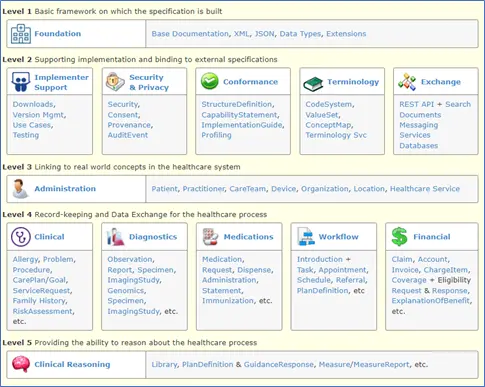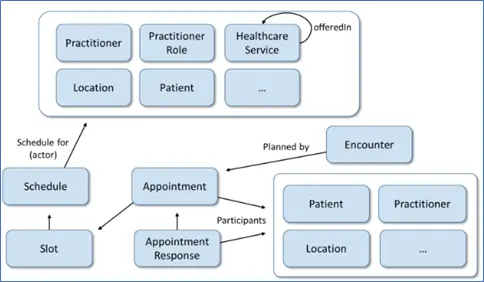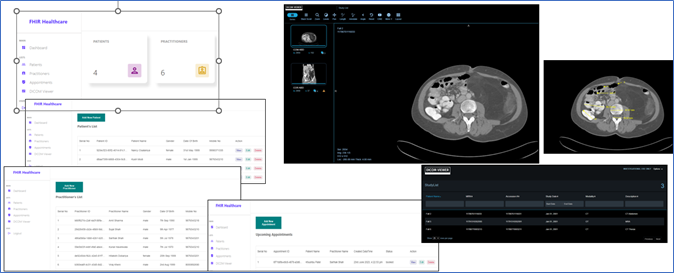Introduction
Microsoft Azure health data services is a cloud-based solution for healthcare providers and companies working in the healthcare domain. Designing healthcare solutions that are secure, scalable, and have customized workflow can be effectively created using Azure health data services. It has various managed services derived from guidelines, standards, and frameworks. By utilizing these managed services, we can significantly reduce the development efforts and costs. Azure health data services solution is designed to comply with regulatory standards, which means the organization can trust in its data security and privacy.
Problem Statement
Healthcare industry and healthcare providers face several challenges like interoperability, standardization of health data, compliance, security, and scalability. Creating a new healthcare solution can help face these challenges and overcoming these challenges requires huge development efforts and costs. Healthcare providers need to follow healthcare standards and regulations such as the HIPPA and GDPR to protect patient privacy and data. There are significant efforts required to understand the complexities associated with the healthcare standards and compliance standards, limiting patient care, research, and analysis.
Understanding FHIR and Azure Health Data Services
HL7 and FHIR
Health Level Seven (HL7) is a non-profitable organization that extensively works and develops healthcare standards. HL7 provides a comprehensive framework and Electronic Health Record (EHR) standards for exchange and integration between different healthcare systems. The standards are defined in such a way that the data exchange works seamlessly. By following the HL7 standards, the healthcare organizations get benefits like improved patient care, enhanced safety, increased efficiency, and cost optimizations. The HL7 standards do not have any cost associated with license (no license cost).
FHIR is a standard for exchanging healthcare information electronically. The HL7 organization has developed modern FHIR standards for healthcare data exchange that are widely accepted and utilized. The data-representation is done in a very efficient and standard way so it is easy for machines and humans to understand and interpret.
FHIR is a modular design that includes healthcare, clinical, administrative, and financial data. FHIR modular components are called resources that can be utilized to create workflows to solve real-world clinical and administrative problems for health organizations. Additionally, FHIR gives flexibility, adaptation, and feature enhancements.
FHIR Standards

Based on the features, the FHIR versions are defined as:
- STU3 (Standard for Trial Use Release 3) was the old version that has limited support available.
- R4 (Release 4) is the current ongoing version, which is widely adopted, recommended for new projects.
- R5 (Release 5) is the preview version for future projects.
Azure Health Data Services
Azure Health Data services is a fully managed health data platform. The included managed services are FHIR and DICOM. These services help rapid exchange and persistence of Protected Health Information (PHI) and health data through interoperable open industry standards (i.e. FHIR).
Azure FHIR Services
Azure FHIR Services is a cloud-based service that enables healthcare organizations to store, manage, and securely exchange electronic health records between different systems and all operations are performed with compliance defined by healthcare regulations. This service leverages the FHIR standards that are adopted in the healthcare industry for secure data exchange. Azure FHIR services help to improve collaboration and innovations to build robust, scalable, and reliable solutions on Azure cloud. Azure FHIR services are part of the managed Platform-as-a-Service (PaaS). Health data working with this service is easy. This service enables secure storage and exchange of PHI in the Azure cloud.
Azure FHIR services provides features like data encryption, access control, audit logging, enterprise grade data access, and storage with high performance and low latency, and quick deployment of FHIR server to leverage elastic scalability of cloud. These features help organizations to design and build high performance scalable solutions for future needs. It also provides compliance features such as HIPPA and GDPR compliance with the ability to configure data retention policies so data protection impact assessments can be performed. Azure FHIR services solution supports FHIR version R4 and has limited support for STU3.
Benefits of Azure FHIR services
- Faster development and reduced costs.
- Microsoft handles compliance and infrastructure, so improved data management and data security helps to focus on core implementation.
- Connecting with various healthcare systems and applications seamlessly gives enhanced interoperability.
- Analyzing health data to improve patient care, research, and operational efficiency.
Azure DICOM services
Azure DICOM services, another component of Azure Health Data Services, is specifically designed for securely managing and exchanging DICOM data in the cloud. DICOM is the international standard. This standard enables features like secure storage, data retrieving, data transmitting, data processing, printing, viewing, and displaying medical imaging information and related data.
Azure DICOM services helps securely store, manage, query, and retrieve medical imaging data (CT, X-rays, and MRI) in DICOM format, provides scalability to handle large values of imaging data with cloud-based infrastructure, and adheres to DICOMweb standards for seamless communication with DICOM-enabled systems, PHI protection, and integrating with other healthcare solutions.
Benefits of Azure DICOM services
- Simplified imaging management and improved accessibility with secure, authorized global availability.
- Microsoft’s security measures for PHI compliance.
- Scalability to handle large volumes, reliability with automatic replications.
- Integrating with other clinical data gives enhanced workflows which gives faster diagnosis and improved clinical decision-making utilizing DICOM Viewers.
SMART on FHIR
SMART stands for Substitutable Medical Applications and Reusable Technologies. FHIR is a standardized format for the EHR data. SMART on FHIR defines a set of open standards and protocols that allow applications to securely connect to different EHR systems and access relevant patient data.
SMART on FHIR gives a standard integration framework that helps to create apps that work seamlessly with different healthcare solutions and enable secure exchange of patient data between applications that empower innovations.
Benefits of SMART on FHIR
- Improving data flow and collaboration between healthcare providers and organizations gives enhanced interoperability.
- Standardized API and development reduces time and integration efforts.
- Better and personalized care by targeted and patient-centric applications.
Healthcare Accelerator Workflow Implementation
By leveraging Azure health data services, we can develop custom workflow and range of features that can reduce development efforts and deliver high-quality healthcare solutions.
One of the verticals eInfochips is focused is healthcare software solutions. We had an initial discussion with healthcare subject matter experts and identified a use case for appointment workflow. The customized workflow works as an accelerator for healthcare using Azure Health Data Services, which includes appointment workflow and DICOM services integration.
The appointment workflow is implemented using Azure FHIR services and SMART on FHIR features. The workflow is designed utilizing FHIR resources like patient, practitioner, appointment, location, schedule, and slot. The workflow helps to manage appointments between patients and practitioners. Administrative users, practitioners, and patients can book appointments based on configured slots and schedules of practitioner, with confirmation and cancellation options. Managing role-based access, we utilized SMART on FHIR framework and created individual patient and practitioner applications. There are extension and enhancements possibilities to include extended roles and adding more FHIR resources and modules linking i.e., prescriptions and medications.

The DICOM service integration with our customized workflow enabled a feature to search, view, analyze, synchronize, and diagnose of medical images.
Utilizing Azure DICOM service and open source DICOM viewer, we provided a comprehensive imaging solution that supports features like decoding, rendering, annotation, conversion to JPEG and PNG, and storing PHI information from the image.
 Some of the key benefits
Some of the key benefits
Following are the benefits of healthcare accelerator implementation:
- Quick implementation: The accelerator gives a jumpstart to explore Azure Health Data Services based solutions and applications.
- Integrated Workflow: Integrate with other healthcare solutions like FHIR and DICOM services within Azure. Implemented EHR and shared between services.
- Improved diagnosis: DICOM viewer integration helps to view and analyze the study with measurements, annotations, segmentations, and image manipulations; the updated diagnosis can save, print, and share.
Following are the key benefits of Azure Health Data Services:
- Development Efforts: By utilizing Azure Health Data Services, we can significantly reduce the development efforts and costs associated with building custom healthcare applications.
- Reduced costs: Eliminates the need for managing on-premises infrastructure, potentially reducing IT costs. Cost saving through pre-built features and components.
- Scalability: Easily scales to handle growing data volumes and user needs.
- Improved Interoperability: Healthcare organizations can seamlessly exchange information between different systems and applications, and ensure adherence to the standards.
- Standardized data: Converts legacy or proprietary data into the FHIR standard, enabling easier sharing and analysis.
- Azure ecosystem integrations: Data stored in Azure cloud, integration with various services across the Azure Ecosystem.
- Compliance: We can have HIPPA / GDPR compliance out of the box.
- Global Availability: Azure Health data services are available in almost all Azure regions.
Conclusion
In conclusion, Azure health data services provides multiple benefits like interoperability, healthcare data standardization, scalability, security, and regulatory compliance with reduced development efforts. Enables healthcare providers and organizations to focus on implementation rather than security and compliance, empowering them to improve patient care, advances research with collaboration and health data analysis, and optimizes operations by gaining resources insights, costs, and quality of care. Depending upon the healthcare solutions and the use cases there is a 10 to 20% cost reduction expected if we utilize Azure Health Data Services.
References
- HL7 FHIR website: https://hl7.org/fhir/
- FHIR resources and tools: https://hl7.org/fhir/R4/
- Azure FHIR service: https://learn.microsoft.com/en-us/azure/healthcare-apis/fhir/overview
- Azure DICOM Service: https://learn.microsoft.com/en-GB/azure/healthcare-apis/dicom/overview
- SMART on FHIR: https://docs.smarthealthit.org/
- DICOMWeb : https://www.dicomstandard.org/using/dicomweb













